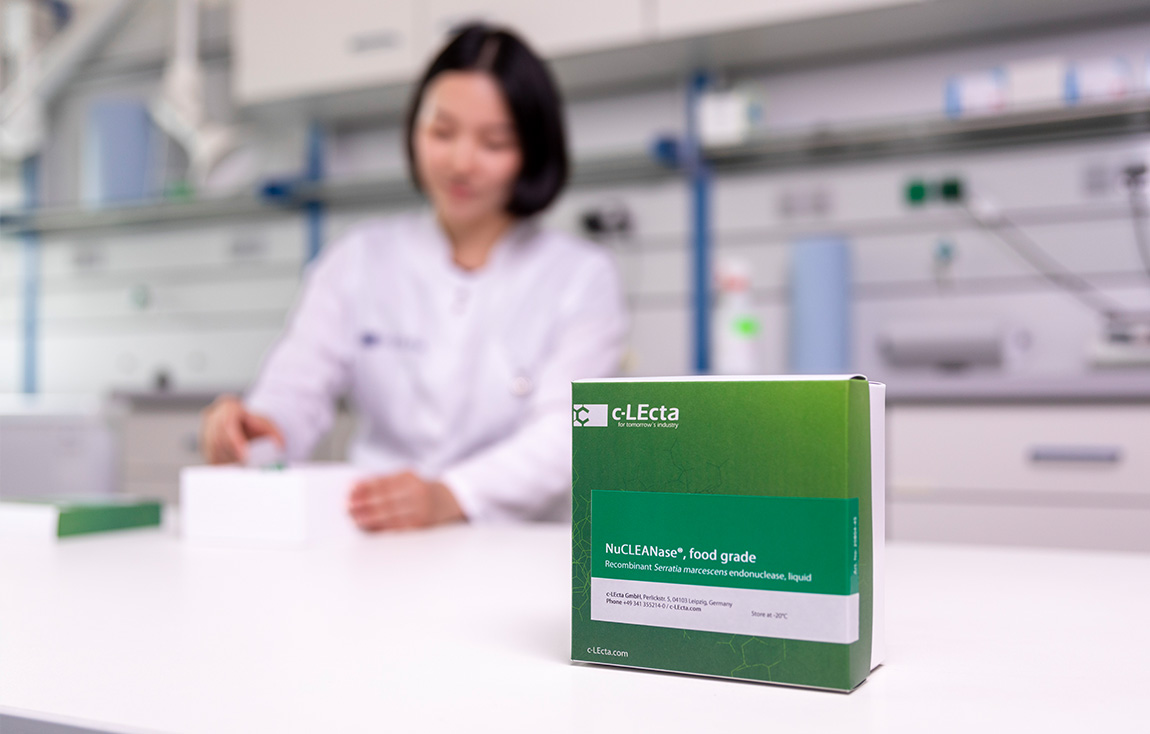Case study: Viscosity reduction in fermentation processes

Microbial fermentation processes are widely employed in the production of various food and feed enzymes, feed additives, amino acids, vitamins, proteins, antibiotics, and more. However, the economics of these fermentation processes are crucial for their future success as an alternative method to obtain many important food and feed ingredients.
Background: One common challenge encountered in many fermentation processes involving bacteria, yeast, or even fungi is the increase in broth viscosity, particularly after fermentation, i.e., at the end of the upstream processing stage. This increase in viscosity can be largely attributed to the accumulation of nucleic acids, resulting from intentional cell disruption or unintentional lysis caused by shear forces or rapid microbial growth. Regardless of the underlying cause, this viscosity increase poses a significant challenge during downstream processing, leading to enhanced membrane fouling and blockages and thus to slower filtration time. Consequently, the entire process becomes inefficient and more expensive.
To address this challenge, we introduce NuCLEANase®- an exceptionally potent food-grade endonuclease, that efficiently degrades all forms of DNA and RNA within a short period, effectively reducing viscosity and minimizing filtration time.
Conclusion: By incorporating NuCLEANase® into fermentation processes, you can:
- Significantly enhance process efficiency
- Increase production capacities
- Ultimately reduce costs by reducing viscosity

